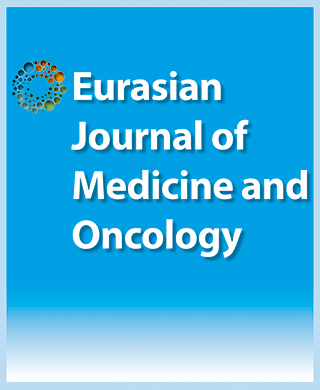

The Role of Artificial Intelligence in Diagnosing Malignant Tumors
Shmmon Ahmad1, Zafar Khan2, Monish Khan3, Moh Aijaz4, Shivani Thakur5, Anjoo Kamboj61Glocal University Pharmacy College, Glocal University Saharanpur India, 2Department of Research and Development, AIMIL Pharmaceuticals, New Delhi, India, 3School of Pharmaceutical Sciences, Glocal University Mirzapur Pole, Saharanpur, India, 4School of Pharmacy, Graphic Era Hill University, Dehradun, Uttarakhand, India, 5Faculty of Pharmacy, Maharaja Agrasen University, Baddi, Solan, Himachal Pradesh, 6Chandigarh College of Pharmacy, Landran, Mohali, Punjab, India,
This paper explores the transformative impact of artificial intelligence (AI) in early tumor diagnosis, emphasizing its role in analyzing health records, medical images, biopsies, and blood tests for improved risk stratification. While screening programs have enhanced survival, challenges remain in patient selection and diagnostic workforces. The review covers diverse AI approaches, including logistic regression, deep learning, and neural networks, applied to various data types in oncology. It discusses the clinical implications, current models in practice, and potential limitations such as ethical concerns and resource demands. We provide an overview of the main artificial intelligence approaches, encompassing historical models like logistic regression, alongside deep learning and neural networks, emphasizing their applications in early diagnosis. We describe the role of AI in tumor detection, prognosis, and treatment administration, and we introduce the application of state-of-the-art large language models in oncology clinics. Our exploration extends to AI applications for omics data types, offering perspectives on their combination for decision-support tools. Concurrently, we evaluate existing constraints and challenges in applying artificial intelligence to precision oncology. The overall aim is to showcase AI's promise in revolutionizing tumor diagnosis while acknowledging and addressing associated chal lenges, thereby advancing patient care. Keywords: Artificial intelligence, early tumor diagnosis, machine learning, clinical implications, challenges in imple mentation, malignant tumors
Cite This Article
Ahmad S, Khan Z, Khan M, Aijaz M, Thakur S, Kamboj A. The Role of Artificial Intelligence in Diagnosing Malignant Tumors. EJMO. 2024; 8(3): 281-294
Corresponding Author: Shmmon Ahmad



